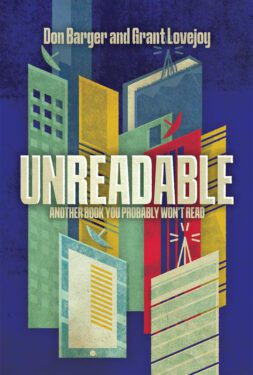Tessa Sanchez
His body sways slightly with the stopping and starting of the metro. One hand grips the rail, and the other holds his phone. He’s watching a video on YouTube about the relevance of faith in today’s world and common misconceptions about Christianity.
He found the link to the video online. He’s not a Christian but texts the link to a friend and then follows the video creator on Instagram after watching a few Reels.
 Gone are the days when most people read books to learn and gain new information. People worldwide, not just in rural areas, now prefer to learn through oral communication, whether on YouTube or social media, in person, or through online interactions with friends, family and connections made online.
Gone are the days when most people read books to learn and gain new information. People worldwide, not just in rural areas, now prefer to learn through oral communication, whether on YouTube or social media, in person, or through online interactions with friends, family and connections made online.
Don Barger and Grant Lovejoy’s book, “Unreadable: Another Book You Probably Won’t Read,” is a journey to discover how people obtain information and how that information shapes how they view themselves and the world.
Barger is the director for Innovation and MX Labs at the International Mission Board (IMB). Lovejoy is the IMB’s director for Scripture and Orality.
“’Unreadable’ invites you into a conversation about how people in cities look for, obtain, process and transmit knowledge and how that process influences their identities, loyalties, animosities, fears, hopes and aspirations,” the authors wrote.
The book delves into whether the methods used to communicate are how people prefer to learn.
Barger and Lovejoy hope “Unreadable,” published on Aug. 5, will help missionaries planting churches in urban areas effectively reach people, communicate the gospel and discover the power of oral communication.
“Urban residents are accessible via social media initiatives that lead to conversations with Christians,” Lovejoy said. “Christians don’t have to be rocket scientists to use social media effectively for ministry.”
The authors note the irony of writing a book to convey information to a society that prefers using oral communication to learn. Recognizing this, QR codes at the end of each chapter lead to a video summary of the chapter, giving the reader the option of consuming the content in the form they’d prefer.
In global cities, Barger and Lovejoy conducted more than 200 interviews with people of different ages, faiths, ethnicities, socio-economic groups, and the educated and uneducated. They interviewed people who grew up in cities and people who grew up in rural areas and moved to the city.
In interviews with new Christians, Barger and Lovejoy asked how they decided to profess Christ — was it through a tract or book, a conversation, video or social media? They also interviewed Christian missionaries to learn what methods they use to share the gospel.
Orality in missions is often associated with rural areas, where literacy is less common, but that isn’t what Barger and Lovejoy found. Even most highly educated urban dwellers do not prefer reading books.
Alex, a PhD student in artificial intelligence, is an example. Much to Barger’s shock, Alex said he can’t stand reading and does everything he can to get out of reading a book. He would be more likely to respond positively to a national believer who used online platforms to have honest conversations about his faith.
“Many people told us that they like to obtain books, but they don’t usually read books. It’s as if learning was by osmosis. We hope that this book will spark a conversation about how people obtain information that shapes who they are and what they believe,” Barger said.
Lovejoy and Barger spoke with an immigrant in Europe who is a Christian but grew up in a Muslim home. Reading books isn’t common in his home country, but music and conversations are the epicenters of learning and communication. The believer plays guitar and sings in plazas in his European city, which draws people from his people group. When Lovejoy and Barger asked how he shares the gospel, he told them he gives them a New Testament.
“He is an earnest Christian witness, but one of his major communication strategies seemed to be a mismatch for his audience,” Lovejoy said. “That encounter reinforced the importance of writing this book. We know communication gaps like that one can be closed.”
Todd Lafferty, the IMB’s executive vice president and chief operations officer, emphasized the book’s importance for international missions.
“‘Unreadable’ opens a world of communication strategies that might surprise those who equate urban communication with literacy,” Lafferty said. “Followers of Jesus seeking to impact their urban environment must approach their task with an open mind — and embrace the new digital frontier. It’s time to think like a digital missionary to reach the next generation.”
“Unreadable” is available for order on Amazon, https://a.co/d/4xvOiqB.
Don Barger is from Birmingham, Alabama, and graduated from the University of Alabama in Birmingham, Southwestern Baptist Theological Seminary in Fort Worth, Texas, and Mid-America Baptist Theological Seminary in Memphis, Tennessee.
Grant Lovejoy is from Oklahoma and graduated from Baylor University in Waco, Texas, and Southwestern Baptist Theological Seminary in Fort Worth, Texas.

